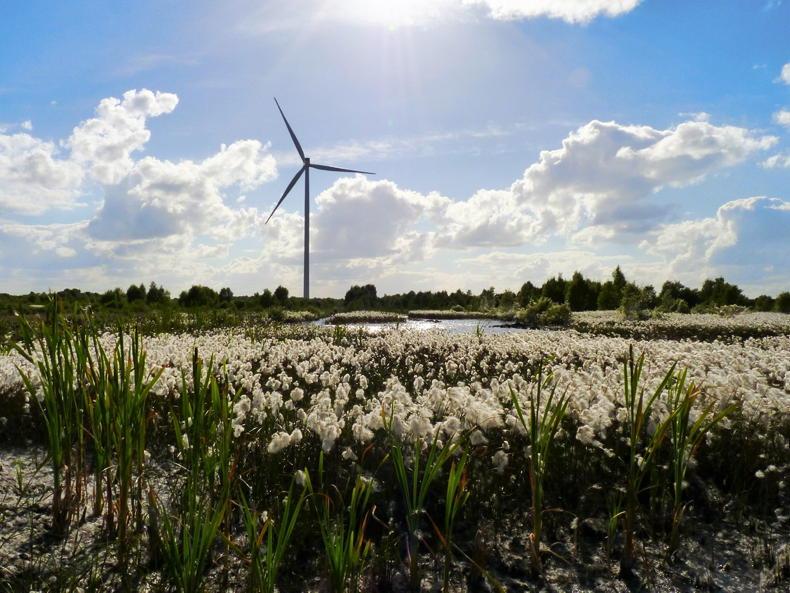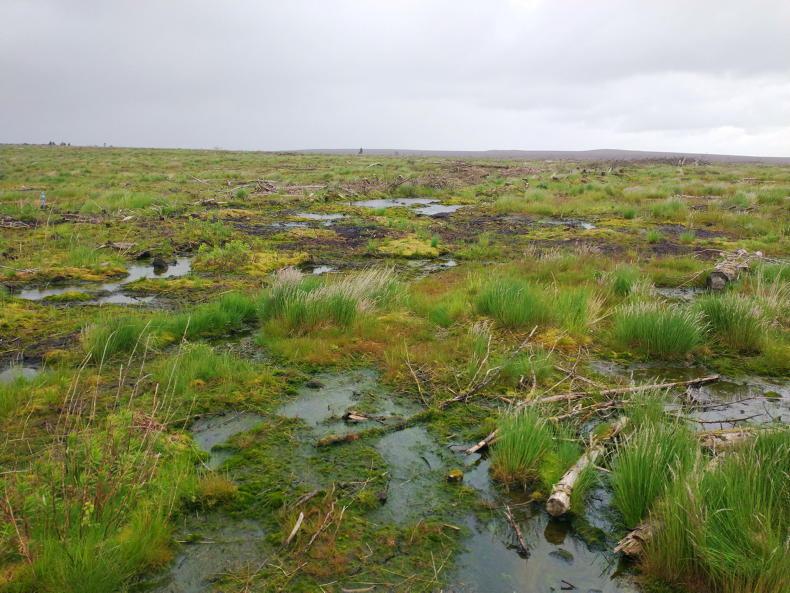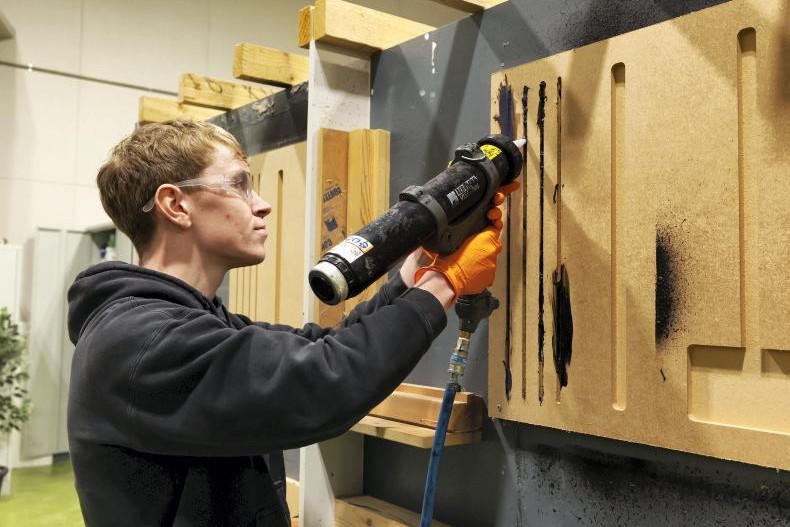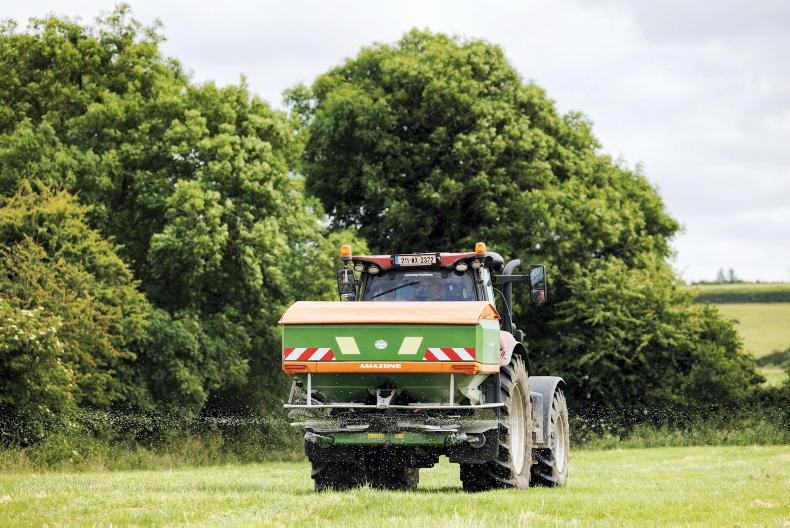Ireland will report greenhouse gas (GHG) emissions and removals from managed wetlands, including those from the country's bogs, from this year.
Under the EU regulations, managed wetland includes wetland which remains as wetland, settlement or other land, converted to wetland; or wetland converted to settlement or other land.
The Department has said that accounting for emissions from these wetlands refers to those wetlands where the water table is artificially changed, those drained or raised, or those created through human activity, such as damming a river.
In Ireland, the majority of this wetland falls under peatland from which peat for energy and horticultural purposes has been extracted, according to the Department.
Targets
While EU member states currently report emissions and removals from the land use sector, these do not go towards GHG emissions targets.
This will change with the application of a new EU land-use accounting system, which will apply to emissions and removals over 2021 to 2030.
The impact of emissions and removals from five out of six land use sectors will be included in the new system from 2021; managed cropland, managed grassland, afforestation, deforestation and managed forests.
Member states have the option to include the impact of the sixth land use, managed wetland, from 2021 and, according to the Department, it is anticipated that this will be mandatory for managed wetland in the second half of the decade.
Bog rewetting
The Department has said that accounting for emissions and removals from managed wetland will enhance motivation for the rehabilitation of degraded peatlands.
“The improvement of Ireland's peatlands has the potential to reduce emissions and in the longer term change them from a source to a sink.
“The potential emission reductions and/or enhanced removals from managed wetland could be used to help Ireland achieve its land use, land use change and forestry target, although it is not possible to provide definitive estimations for such contributions at this time,” it said.
Building blocks
Minister for the Environment Eamon Ryan said: “This decision to account for managed wetlands over the period 2021-2025 is another of the key building blocks we are putting in place to support the delivery of the Government's climate objectives.
“Our wetlands have a key role to play in both storing and capturing carbon emissions. What gets measured gets managed, and this will incentivise us to create more potential for carbon sinks.”
Read more
€108m for Bord na Móna to restore 80,000ha of bog
Bog rewetting could flood midland farms - IFA
Ireland will report greenhouse gas (GHG) emissions and removals from managed wetlands, including those from the country's bogs, from this year.
Under the EU regulations, managed wetland includes wetland which remains as wetland, settlement or other land, converted to wetland; or wetland converted to settlement or other land.
The Department has said that accounting for emissions from these wetlands refers to those wetlands where the water table is artificially changed, those drained or raised, or those created through human activity, such as damming a river.
In Ireland, the majority of this wetland falls under peatland from which peat for energy and horticultural purposes has been extracted, according to the Department.
Targets
While EU member states currently report emissions and removals from the land use sector, these do not go towards GHG emissions targets.
This will change with the application of a new EU land-use accounting system, which will apply to emissions and removals over 2021 to 2030.
The impact of emissions and removals from five out of six land use sectors will be included in the new system from 2021; managed cropland, managed grassland, afforestation, deforestation and managed forests.
Member states have the option to include the impact of the sixth land use, managed wetland, from 2021 and, according to the Department, it is anticipated that this will be mandatory for managed wetland in the second half of the decade.
Bog rewetting
The Department has said that accounting for emissions and removals from managed wetland will enhance motivation for the rehabilitation of degraded peatlands.
“The improvement of Ireland's peatlands has the potential to reduce emissions and in the longer term change them from a source to a sink.
“The potential emission reductions and/or enhanced removals from managed wetland could be used to help Ireland achieve its land use, land use change and forestry target, although it is not possible to provide definitive estimations for such contributions at this time,” it said.
Building blocks
Minister for the Environment Eamon Ryan said: “This decision to account for managed wetlands over the period 2021-2025 is another of the key building blocks we are putting in place to support the delivery of the Government's climate objectives.
“Our wetlands have a key role to play in both storing and capturing carbon emissions. What gets measured gets managed, and this will incentivise us to create more potential for carbon sinks.”
Read more
€108m for Bord na Móna to restore 80,000ha of bog
Bog rewetting could flood midland farms - IFA








SHARING OPTIONS